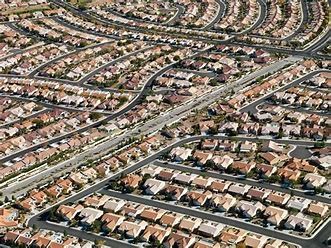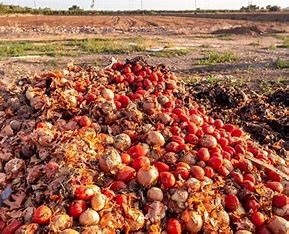For centuries, the growth and expansion of cities, known as urbanization, have been defining characteristics of human civilization. The world’s topography is changing dramatically as people migrate from rural to urban areas in pursuit of better prospects. The impact of urban growth on agricultural land usage is a noteworthy outcome, given its pivotal role in maintaining global food security, environmental sustainability, and socio-economic stability.
The impact of urbanization on agriculture is most obviously observed in the encroachment of urban areas onto rural land. Fertile farmland is often transformed into commercial, industrial, and residential districts as cities expand farther apart to accommodate the demands of a growing population for housing, amenities, and infrastructure. This conversion reduces the amount of agricultural land available overall and fragments and isolates the remaining farmland, making it less viable for cultivation.
Food production and security are seriously threatened by the loss of agricultural land to urbanization. A decrease in agricultural output could lead to food shortages and a greater reliance on imports due to less land being available for farming. Furthermore, local food systems are disrupted when agricultural land is converted to urban areas because farmers are forced to relocate or abandon traditional farming methods due to rising land costs, resource competition, and regulatory restrictions.

A concentration of agricultural land in the hands of a few powerful real estate developers or agribusinesses is another effect of urbanization, which also alters the dynamics of land tenure and ownership. The difficulty smallholder farmers and rural communities face in competing or negotiating fair terms in land transfers can exacerbate socioeconomic inequality. This is due to the consolidation of the agricultural industry. Additionally, communities reliant on agriculture for their income and survival may struggle to maintain their way of life, and the gap between rural and urban areas may widen as a result of the loss of agricultural land.
The effects of urbanization on agricultural land usage have far-reaching environmental implications, extending beyond their impacts on livelihoods and food security. Ecosystem disturbance, biodiversity loss, and depletion of soil and water resources are all consequences of converting natural landscapes into urban areas. Additionally, agricultural activities in urban periphery areas may exacerbate environmental deterioration through the overuse of agrochemicals, soil erosion, and pollutant discharge, further undermining the sustainability and resilience of agricultural systems.
Notwithstanding these difficulties, urbanization offers opportunities for creative methods of managing and utilizing agricultural land. Urban agriculture is gaining popularity as a means to enhance food security, promote sustainable food production, and bolster community resilience. It involves cultivating crops and raising livestock within or near urban areas. Urban agriculture encompasses a diverse range of techniques, including aquaponics, vertical farming, rooftop gardens, and community gardens, which leverage limited space and resources to supply nutritious, fresh food to urban populations.

Furthermore, the adverse effects of urbanization on agricultural land use can be mitigated with the support of governmental interventions and strategic land-use planning. Land zoning, land-use laws, and incentives for sustainable land management techniques are examples of policies that might help safeguard remaining agricultural land, promote land stewardship, and balance conflicting demands for land use. Additionally, initiatives to support agroforestry, peri-urban agriculture, and land-sharing agreements between urban and rural regions can bolster integrated land-use strategies that enhance food production, preserve the environment, and promote equitable and sustainable development.
The usage of agricultural land is significantly affected by urbanization, which presents opportunities and challenges for socioeconomic development, environmental sustainability, and food security. To effectively address the complex relationships that arise between urbanization and agriculture, comprehensive and inclusive approaches are required, with a focus on preserving agricultural land, promoting sustainable land management techniques, and empowering local communities to influence the development of our food systems in an increasingly urbanized global community.
Sources
- https://www.ncbi.nlm.nih.gov/pmc/articles/PMC2935117/#:~:text=Urbanization%20brings%20major%20changes%20in,in%20their%20diets%20and%20demands.
- https://www.ijrar.org/papers/IJRAR19D1155.pdf
- https://nairaproject.com/projects/4563.html#:~:text=Urbanization%20leads%20to%20the%20inaccessibility,for%20the%20development%20of%20agriculture.
- https://www.jstor.org/stable/1053520




